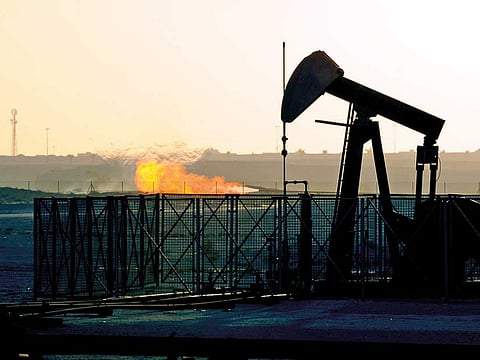Bahrain’s huge find could hold up to 600m recoverable barrels
Investment and technical capabilities could pose a challenge, analyst says

Abu Dhabi: Bahrain’s latest oil find could hold reserves of between 300 million to 600 million recoverable barrels, but analysts say it could take several years and significant investment to achieve a tangible output.
The country discovered its biggest oilfield since it started producing crude in 1932, according to an announcement by the official news agency on Sunday.
“The key challenges for Bahrain are to access the right level of investment, as well as the right technical capabilities,” said Jaafar Al Taie, managing director of Manaar Energy Group.
He however said Bahrain has reasonable national capabilities in the form of Bapco (The Bahrain Petroleum Company) and existing relationships with Saudi Aramco could prove an additional asset.
“Having existing relationships with Aramco could prove an additional asset as Aramco is becoming a global leader in developing offshore assets and producing hydrocarbons from increasingly mature and difficult areas. In addition, Bahrain has a strong financial sector and good access to international companies.”
Currently, Bahrain is working with Saudi Aramco on the Abu Safah offshore oilfield and has a revenue sharing agreement with the Saudi-based oil giant.
When asked on the estimated reserves of latest oil discovery, he said it was difficult to estimate due to tight oil and deep gas formations but could be in the range of 300 million to 600 million recoverable barrels.
Having existing relationships with Aramco could prove an additional asset as Aramco is becoming a global leader in developing offshore assets.”
Bahrain is not part of Opec and is not bound by the group’s policy of limiting production, but is expected to continue a strong degree of cooperation, he added.
The current oil production of Bahrain is about 53,000 barrels per day.
Bahrain discovered the offshore Khaleej Al Bahrain Basin as it seeks to expand output capacity at its wholly owned Bahrain Field to 100,000 barrels a day by the end of the decade.
The country is pumping about 45,000 barrels of oil a day from its Bahrain Field, and it shares income from a deposit with Saudi Arabia that produces about 300,000 barrels a day, according to figures from the US Energy Information Administration.
Bahrain has crude reserves of 124.6 million barrels — fewer than Poland — and 92.03 billion cubic metres of natural gas, according to the CIA Factbook.
Saudi Arabia, by comparison, has 266.5 billion barrels of crude reserves, while Qatar has 24.3 trillion cubic metres of gas.
— With inputs from Bloomberg
Sign up for the Daily Briefing
Get the latest news and updates straight to your inbox



